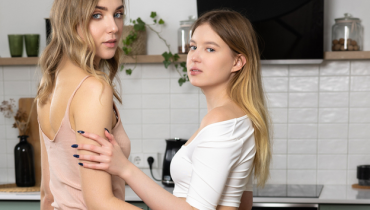For Hannah Edwards, sleep was always an afterthought. “I treated rest like a luxury,” she says. “Something I’d get to after I finished everything else.” As a full-time marketing director and mother of two, her nights were defined by scrolling emails, late caffeine fixes, and constant overthinking.
“I was always tired but never sleepy,” she laughs. What started as a few restless nights became years of chronic insomnia, until one winter she hit a wall — mentally and physically. That was when Hannah decided to rebuild her relationship with rest, beginning with something deceptively simple: her bedtime routine for better sleep quality.
When Exhaustion Becomes the New Normal
Hannah’s story mirrors millions of Americans who silently suffer from poor sleep hygiene. According to the Sleep Foundation, nearly one-third of adults in the United States get less than the recommended seven hours of sleep each night. “At first, I told myself I was just a night owl,” she recalls. “But then my health started slipping — brain fog, headaches, low immunity. My doctor said, ‘You’re not tired; you’re depleted.’”
During the pandemic, when work and home life blurred into one endless day, Hannah’s insomnia worsened. “I’d be answering Slack messages at midnight and still feel guilty for not doing enough,” she says. “My mind refused to shut down.” She tried melatonin, sleep podcasts, herbal teas — nothing worked consistently. “That’s when I realized I needed a system, not a supplement,” she says. The system became her nightly sanctuary: a structured, sensory, and technology-aware bedtime routine that restored both her body and her sense of peace.
Why Bedtime Routines Matter More Than You Think
Science supports Hannah’s discovery. Consistent bedtime routines strengthen the body’s circadian rhythm — the internal clock that regulates sleep-wake cycles. “Our brains crave predictability,” explains Dr. Michael Reyes, a neurologist at the Mayo Clinic. “When you go to bed and wake up at the same time every day, you train your brain to release melatonin naturally.” Melatonin is the hormone that signals your body to wind down, and its release is easily disrupted by erratic schedules, caffeine, and especially blue light from screens.
Before Hannah learned this, her evenings were chaotic. “I’d collapse into bed after checking social media and wonder why I couldn’t fall asleep,” she says. Now, she treats her evenings like a pre-performance ritual — calm, intentional, and repetitive. “My routine tells my brain: we’re safe, we can rest.”
The Science-Backed Foundation of Better Sleep
Researchers at Harvard Medical School have identified five pillars of high-quality sleep hygiene: consistency, environment, pre-bed relaxation, limited stimulation, and mindful nutrition. Hannah gradually incorporated each into her evening routine. “It wasn’t about perfection,” she says. “It was about pattern.”
Her first step was setting a fixed bedtime and wake-up schedule, even on weekends. “At first, it felt restrictive,” she admits. “But within two weeks, my body started craving sleep at the same time every night.” This regularity re-synced her circadian rhythm, helping her fall asleep faster and wake up naturally. She noticed that consistency worked better than any sleeping pill she’d ever tried. “It’s like training your internal clock — the more you respect it, the more it rewards you.”
Designing a Bedtime Routine That Actually Works
Hannah’s transformation began with trial and error. “I tried copying influencer routines at first — 10-step skincare, journaling, tea, reading, stretching,” she says. “But I ended up more stressed about doing it right.” Eventually, she designed her own realistic version — a 45-minute process she calls her “evening unwind.”
Step 1: The Digital Detox
“The hardest habit to break was my phone,” Hannah admits. “I used to scroll until my eyes hurt.” Blue light from screens suppresses melatonin production, delaying sleep onset by up to 90 minutes, according to a NIH study. Now, she sets her phone on “Do Not Disturb” an hour before bed and charges it in another room. “If I need something visual, I use a physical book or a Kindle with warm light.”
Her husband joined the challenge, and they both noticed immediate improvements. “We used to go to bed and still stare at separate screens,” she says. “Now, we talk, laugh, or just rest quietly — and that connection itself helps me relax.”
Step 2: Environmental Cues
Hannah discovered that her environment was sabotaging her sleep. “My bedroom looked like an office — laptop, charger cords, bright lights,” she says. She followed advice from the National Sleep Foundation to redesign her space: blackout curtains, cooler temperatures (around 65°F), and soft amber lighting. She also added a diffuser with lavender essential oil — known for its calming properties — and a weighted blanket. “Now my room signals comfort,” she says. “When I walk in, my body knows it’s time to power down.”
Step 3: Gentle Movement and Relaxation
Instead of intense workouts, Hannah does slow yoga or stretching before bed. “Just 10 minutes of mindful movement helps me release tension,” she says. Research from the National Center for Biotechnology Information found that light exercise before bed reduces anxiety and improves sleep efficiency. For Hannah, movement became a transition ritual — a way to shift from “doing” to “being.”
Step 4: Nutrition and Supplements
Diet also plays a surprisingly large role in sleep quality. “I used to snack on chocolate late at night,” Hannah laughs. “Didn’t realize caffeine was sneaking in.” Now she avoids caffeine after 2 p.m. and limits alcohol on weeknights. She incorporates magnesium-rich foods like almonds and spinach at dinner, along with vitamin B6 and omega-3s for nervous system health. Occasionally, she takes a natural sleep support supplement with melatonin and chamomile. “I learned from the Mayo Clinic that more isn’t better — just 1–3 mg of melatonin is enough to help your body remember how to sleep.”
Step 5: Mental Unloading
Before bed, Hannah spends five minutes writing what she calls her “brain dump.” “It’s a mental release,” she says. “I list everything I’m worried about or need to do tomorrow. Once it’s on paper, my mind stops looping.” This method echoes cognitive-behavioral therapy techniques used for insomnia (CBT-I), which help break the cycle of bedtime anxiety. “Sometimes I add gratitude — three small things that went right today,” she says. “It’s my way of ending the day gently.”
The Transformation: From Insomnia to Deep Rest
After three months of consistency, Hannah’s results were undeniable. Her sleep tracker — an Oura Ring — showed longer deep sleep phases and fewer nightly awakenings. “But more importantly, I woke up with energy I hadn’t felt in years,” she says. Her skin cleared, her focus sharpened, and even her mood stabilized. “It wasn’t magic — it was discipline.”
Her therapist noticed, too. “Sleep became my anchor,” she says. “Once that improved, everything else followed — my patience, my creativity, even my relationships.” The irony wasn’t lost on her: “I spent years chasing productivity when all I needed was rest.”
Expert Insights on Building Sustainable Bedtime Routines
Dr. Reyes emphasizes that bedtime routines work best when tailored to individual needs. “There’s no one-size-fits-all,” he says. “Some people respond better to silence, others to soundscapes or guided meditation.” He recommends using apps like Headspace or Calm, which combine mindfulness and behavioral therapy principles to support better sleep habits. Hannah found value in both. “The breathing guides are amazing,” she says. “They slow your heart rate — you can literally feel your body shifting gears.”
Experts also warn against chasing perfection. “Skipping a routine one night doesn’t undo progress,” Dr. Reyes notes. “The goal is long-term rhythm, not control.” He advises people to start small — even ten minutes of consistent relaxation before bed can improve sleep within two weeks.
Hannah’s Advice for Better Sleep Quality
Now an advocate for healthy rest, Hannah shares her core advice for those struggling with poor sleep:
- 1. Set a wind-down alarm: “We set alarms to wake up — why not to go to bed?”
- 2. Ditch multitasking at night: “Your brain can’t relax if it’s still processing tasks.”
- 3. Keep lights low: Warm, amber lighting tells your body it’s nighttime.
- 4. Keep your bedroom sacred: “No laptops, no arguments, no stress allowed.”
- 5. Respect your rhythms: “Early birds and night owls exist — just keep consistency within your natural window.”
She also encourages practicing self-compassion. “Some nights you’ll still toss and turn,” she says. “That’s okay. Rest isn’t just sleep — it’s also kindness toward yourself.”
When to Seek Professional Help
While lifestyle changes can improve most mild sleep problems, persistent insomnia may signal deeper issues like anxiety disorders, sleep apnea, or hormonal imbalance. Hannah advises consulting a specialist if sleeplessness lasts more than three months. Resources like the Sleep Foundation and the National Institutes of Health offer free guides to understanding sleep disorders and finding certified sleep clinics.
“There’s no shame in needing help,” she says. “We get physical checkups — why not mental ones for rest?” She adds that combining therapy with practical routines can accelerate recovery. “The mind and body heal faster together.”
The Spiritual Side of Rest
For Hannah, sleep became more than recovery — it became reflection. “When I stopped rushing through my nights, I started noticing my days more,” she says. “Rest made me grateful.” Now she protects her bedtime like a sacred ritual. “I light a candle, close my planner, and whisper, ‘I’ve done enough for today.’”
Her journey inspired many of her followers to create their own bedtime rituals. She shares nightly “slow-living stories” on social media, reminding thousands that true wellness starts with stillness. “People chase supplements, gadgets, and hacks,” she says. “But sleep isn’t a hack. It’s our body’s most ancient technology.”
Final Thoughts: Rest as a Revolution
“We live in a culture that glorifies exhaustion,” Hannah says. “But I’ve learned that rest is an act of rebellion.” Her advice is simple yet powerful: “You can’t pour from an empty cup. The quality of your sleep defines the quality of your life.” She pauses, smiling softly. “The most successful people I know aren’t the busiest — they’re the most rested.”
Today, Hannah’s nights are peaceful. Her routine is simple: herbal tea, soft light, quiet gratitude. “I still have busy days, but I don’t carry them to bed,” she says. “Every night feels like a small surrender — and every morning, a quiet victory.”




























































